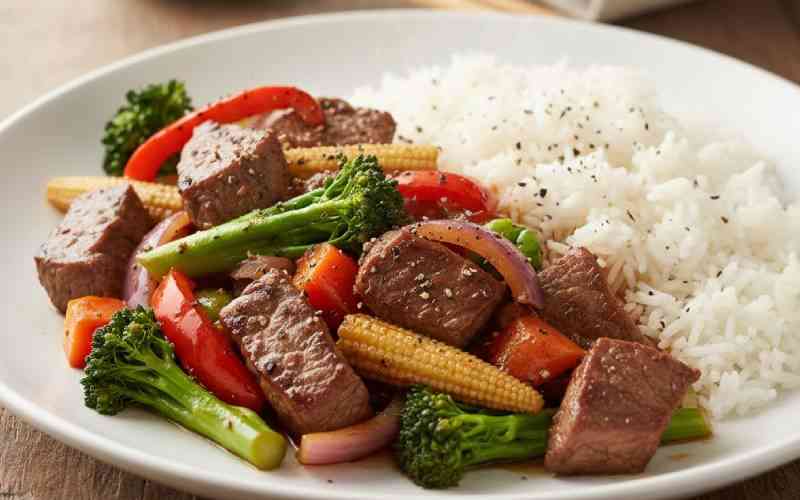
As the control center of your body, your brain is in charge of keeping your heart beating, lungs breathing and allowing you to move, feel and think. That is why it's a good idea to keep your brain healthy and in excellent working condition. The foods you eat play a key role in keeping your brain healthy and can improve specific mental tasks, such as memory and concentration.
Here are some of the foods that boost brain activity:

1. Coffee
If you always start your day by drinking coffee, you will be glad to hear that it is good for you. The two main components in coffee; caffeine and antioxidants, help your brain. The caffeine in coffee has a number of positive effects on the brain including:
Increased alertness: Caffeine keeps your brain alert by blocking adenosine, a chemical that makes one sleepy. Improved mood: Caffeine may also boost some of your feel-good neurotransmitters, such as serotonin. Sharpened concentration: A study found that when participants drank coffee in the morning or smaller amounts throughout the day, they were more effective at tasks that require concentration. Drinking coffee over the long term is also linked to a reduced risk of neurological diseases, such as Parkinson's and Alzheimer's. This could at least be partly due to coffee's high concentration of antioxidants.
2. Turmeric
Turmeric has been getting a lot of attention for a while. The deep-yellow spice has a number of benefits for the brain. Curcumin, the active ingredient in turmeric, has been shown to cross the blood-brain barrier, meaning it can directly enter the brain and benefit the cells there.
It's a potent antioxidant and anti-inflammatory compound that has been linked to the following brain benefits:
May benefit memory: Curcumin may help improve memory in people with Alzheimer's. It may also help clear the amyloid plaques that are a hallmark of this disease. Eases depression: It boosts serotonin and dopamine, which both improve mood. Helps new brain cells grow: Curcumin boosts brain-derived neurotrophic factor, a type of growth hormone that helps brain cells grow. It may help delay age-related mental decline, but more research is needed.
3. Broccoli
Broccoli is full of powerful plant compounds, including antioxidants. It is also very high in vitamin K, delivering more than 100% of the Recommended Daily Intake (RDI) in a 1-cup (91-gram) serving. This fat-soluble vitamin is essential for forming sphingolipids, a type of fat that is densely packed into brain cells.
Beyond vitamin K, broccoli contains a number of compounds that give it anti-inflammatory and antioxidant effects, which may help protect the brain against damage.

4. Pumpkin Seeds
Pumpkin seeds contain powerful antioxidants that protect the body and brain from free radical damage. They are also an excellent source of magnesium, iron, zinc and copper.
Each of these nutrients that are important to the brain are found in pumpkin seeds:
Zinc: This element is crucial for nerve signaling. Zinc deficiency has been linked to many neurological conditions, including Alzheimer's disease, depression and Parkinson's disease. Magnesium: Magnesium is essential for learning and memory. Low magnesium levels are linked to many neurological diseases, including migraines, depression and epilepsy. Copper: Your brain uses copper to help control nerve signals. And when copper levels are out of whack, there's a higher risk of neurodegenerative disorders, such as Alzheimer's. Iron: Iron deficiency is often characterized by brain fog and impaired brain function.
5. Oranges
You can get all the vitamin C that is needed in a day by eating one medium orange. Doing so is important for your brain’s health since vitamin C is a key factor in preventing mental decline. Eating sufficient amounts of vitamin C-rich foods can protect against age-related mental decline and Alzheimer's disease.
Vitamin C is a powerful antioxidant that helps fight off free radicals that can damage brain cells and it supports your brain health as you age.
You can also get excellent amounts of vitamin C from bell peppers, guava, kiwi, tomatoes and strawberries.

6. Fatty Fish
Fatty fish is often at the top of the list of every brain food discussion. This type of fish include salmon, trout and sardines, which are all rich sources of omega-3 fatty acids. About 60% of your brain is made of fat, and half of that fat is the omega-3 kind.
Your brain uses omega-3s to build brain and nerve cells, and these fats are essential for learning and memory boosting.
Omega 3-s also have a couple additional benefits for your brain and they may slow age-related mental decline and help ward off Alzheimer's disease.
Not getting enough omega-3s is linked to learning impairments, as well as depression.
What’s the most ridiculous fact you know? The Standard Group Plc is a multi-media organization with investments in media
platforms spanning newspaper print
operations, television, radio broadcasting, digital and online services. The
Standard Group is recognized as a
leading multi-media house in Kenya with a key influence in matters of national
and international interest.
The Standard Group Plc is a multi-media organization with investments in media
platforms spanning newspaper print
operations, television, radio broadcasting, digital and online services. The
Standard Group is recognized as a
leading multi-media house in Kenya with a key influence in matters of national
and international interest.










